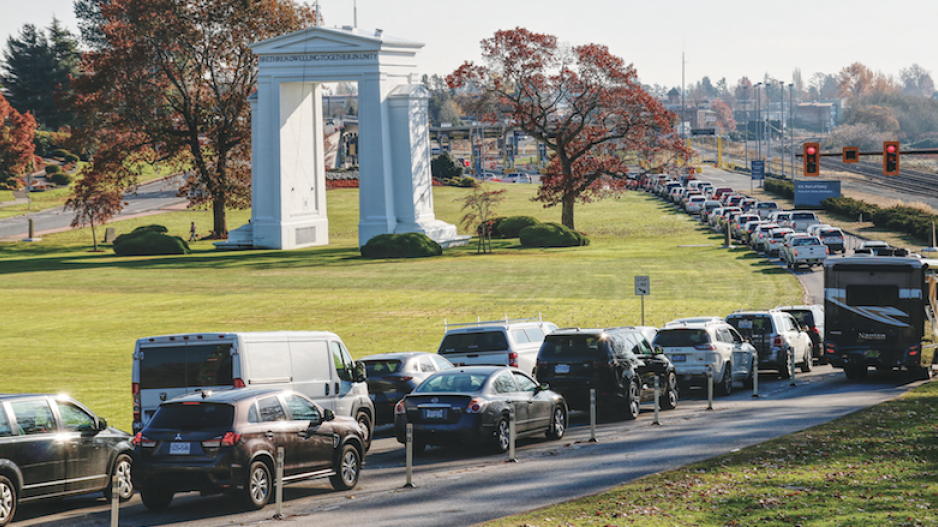British Columbians start the year with uncertainty. (55 per cent) think housing and the economy are the most important issues facing Canada and practically (59 per cent) expect the presidency of Donald Trump to have a negative impact on their province.
Since 2018, Research Co. has asked British Columbians a series of questions about politics, allegiance and the future. While we do not have the same appetite for sovereignty that some young Albertans and older Quebecers usually outline, our perceptions about the inhabitants of Washington state and Oregon remain overly positive.
This year, three in five British Columbians (60 per cent, up two points ) believe we have more in common with the people of Seattle and Portland than with those in Toronto or Montreal. The statement sees little fluctuation by age, with 59 per cent of those aged 18-34, 60 per cent of those aged 35-54 and 60 per cent of those aged 55 and over agreeing with it.
More than three in five respondents (62 per cent, up one point) consider themselves “Canadians first, British Columbians second,” while one in four (25 per cent, up four points) are “British Columbians first, Canadians second.” We also see 64 per cent of the province’s residents (up seven points) saying that the views of British Columbians are different from the rest of the country, and almost four in five (79 per cent, down one point) saying they are proud of the province that they live in.
Just under three in ten British Columbians (28 per cent, up eight points) think British Columbia would be better off as its own country. While just 16 per cent of those aged 55 and over can flirt with independence, the proportions rise to 34 per cent among those aged 35-54 and to 37 per cent among those aged 18-34.
More than seven in 10 British Columbians (71 per cent, down two points) believe they will stay in the province for the rest of their lives, including 60 per cent of those aged 18-34. While both indicators are still in majority territory, the numbers have dropped since the first time we asked this question —a few months into the premiership of John Horgan—when 77 per cent of all residents and 66 per cent of the youngest ones expected to remain put.
Horgan remains ahead on the list of best recent premiers, with the endorsement of 25 per cent of British Columbians (down five points). Gordon Campbell is the only other head of government who reaches double digits (11 per cent, up three points), followed by Christy Clark (seven per cent, unchanged), David Eby (also seven per cent, up three points) and Mike Harcourt (six per cent, unchanged).
Support for Horgan on this question reaches 45 per cent among BC New Democratic Party (NDP) voters in the 2024 provincial election, 37 per cent among British Columbians aged 55 and over and 36 per cent among residents of Vancouver Island. Among British Columbians who voted for the Conservative Party of BC last year, Campbell is in first place (17 per cent), with Horgan and Clark tied at 11 per cent.
When asked to pick the worst premier since August 1986, almost one in four British Columbians (23 per cent, up four points) select Christy Clark, followed by Campbell (11 per cent, down two points), Eby (nine per cent, up five points), Bill Vander Zalm (seven per cent, unchanged) and Glen Clark (also seven per cent, down one point).
The last leader to command the BC Liberals to an electoral victory is regarded as the worst recent premier by more than a third of BC NDP voters (35 per cent), 30 per cent of BC Green voters and 17 per cent of BC Conservative voters.
Christy Clark’s bid to lead the federal Liberal Party—which was abandoned after our survey was completed—was not particularly enthusing to British Columbians. A third (33 per cent) told us they would have liked to see this happen, and 26 per cent said they would consider voting for the federal Liberals with Clark at the helm.
In southern B.C., which was instrumental for the BC Liberals in the elections won by Campbell and Clark, only 18 per cent of respondents told us they would consider voting for the Liberals with the former premier as leader. Electoral success in one legislature does not bestow a politician with the ability to break long-established allegiances in another.
Mario Canseco is president of Research Co.
Results are based on an online survey conducted from Jan. 10-12, 2025, among a representative sample of 800 adults in British Columbia. The data has been statistically weighted according to Canadian census figures for age, gender and region in British Columbia. The margin of error—which measures sample variability—is +/- 3.5 percentage points, 19 times out of 20.




